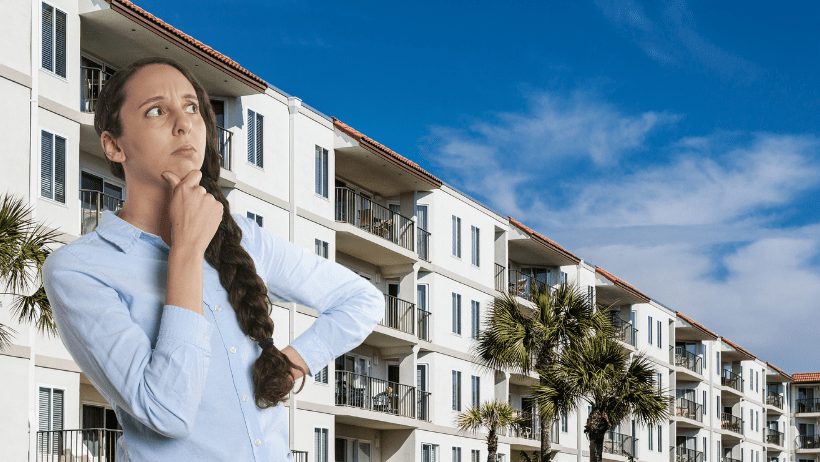The term “condominium” in Costa Rica refers to a legal property entity registered in the National Registry as such. There are specifications on a master plan as to the dimensions, location and number of condominium lots — or subunits known as finca filiales — that the condominium is divided into.
The balance of the condominium property outside of the individual condominium lots, such as interior roads and green spaces, is known as the “common area.”
This is a relatively new way of living in Costa Rica, unlike countries such as Canada and the U.S., where condominium developments have existed for some time.
Condominium ownership and governance
A condominium property regime is governed by the Condominium Law and Regulations. Only the condominium lots are able to be owned by individual owners, either personally, or through a registered owner corporation, with a common interest in the common areas held by all owners in the project.
These condominium lots are registered in the National Registry and the property title may be encumbered with mortgage financing, or such other annotations as might be applicable. Ownership may be transferred between a seller and a buyer in the same manner as other registered titled properties.
Condominium lots can take one of three different forms: apartment-style in multi-story buildings, townhouses or individual family homes on independent building lots.
Each condominium entity has a registered set of bylaws, known as the reglamento, which an individual condominium lot owner must adopt and agree to be bound by at the time of the property purchase. An administrator is appointed under the bylaws to carry out their enforcement. This extends to the use, enjoyment and maintenance of the common areas and restrictions on the use and enjoyment of the individual condominium lots, such as noise pollution restrictions and the like.
After registration in the National Registry, these bylaws may only be amended by a 100% vote in favor taken at a general assembly meeting of the homeowners association (HOA), representing all lot owners in the condominium project. An administrator’s powers extend to levying monetary penalties against condominium lot owners who are delinquent in their HOA dues, or don’t otherwise abide by the bylaws.
Condominium construction considerations
Most condominium developments are relatively modern in their construction techniques, catering to North American architectural styles with open floor plans and other similar amenities. However, one major consideration is with some of the older apartment or townhouse-style units, where it was common to construct single concrete block walls between adjoining units. This, of course, allows for increased sound transmission between such units. Newer condominium developments have adopted a double concrete block width for adjoining unit walls. This has greatly diminished noise transmission between units in such developments.
Security
An attractive part of condominium living in Costa Rica is the 24-hour security provision. Condominiums are generally gated and guarded communities, where owners have the flexibility to come and go as they please without security concerns. The condominium lifestyle affords the most secure form of living in Costa Rica.
Depending upon the size of the condominium, the development can offer a complete range of lifestyle opportunities. They may include swimming pools, gymnasiums, and a clubhouse catering to various social functions, all within the same secure community setting.
For more information and answers to your questions on diverse legal topics, visit Costa Rica Canada Law: www.costaricacanadalaw.com
See this article in the magazineJTNDZGl2JTIwc3R5bGUlM0QlMjJwb3NpdGlvbiUzQXJlbGF0aXZlJTNCcGFkZGluZy10b3AlM0FtYXglMjg2MCUyNSUyQzMyNnB4JTI5JTNCaGVpZ2h0JTNBMCUzQndpZHRoJTNBMTAwJTI1JTIyJTNFJTNDaWZyYW1lJTIwc2FuZGJveCUzRCUyMmFsbG93LXRvcC1uYXZpZ2F0aW9uJTIwYWxsb3ctdG9wLW5hdmlnYXRpb24tYnktdXNlci1hY3RpdmF0aW9uJTIwYWxsb3ctZG93bmxvYWRzJTIwYWxsb3ctc2NyaXB0cyUyMGFsbG93LXNhbWUtb3JpZ2luJTIwYWxsb3ctcG9wdXBzJTIwYWxsb3ctbW9kYWxzJTIwYWxsb3ctcG9wdXBzLXRvLWVzY2FwZS1zYW5kYm94JTIyJTIwYWxsb3dmdWxsc2NyZWVuJTNEJTIydHJ1ZSUyMiUyMHN0eWxlJTNEJTIycG9zaXRpb24lM0FhYnNvbHV0ZSUzQmJvcmRlciUzQW5vbmUlM0J3aWR0aCUzQTEwMCUyNSUzQmhlaWdodCUzQTEwMCUyNSUzQmxlZnQlM0EwJTNCcmlnaHQlM0EwJTNCdG9wJTNBMCUzQmJvdHRvbSUzQTAlM0IlMjIlMjBzcmMlM0QlMjJodHRwcyUzQSUyRiUyRmUuaXNzdXUuY29tJTJGZW1iZWQuaHRtbCUzRmJhY2tncm91bmRDb2xvciUzRCUyNTIzNWQ2NWIwJTI2ZCUzRDIwMjExMl9kZWNfaWRtJTI2cGFnZU51bWJlciUzRDg4JTI2dSUzRGhvd2xlciUyMiUzRSUzQyUyRmlmcmFtZSUzRSUzQyUyRmRpdiUzRQ==







